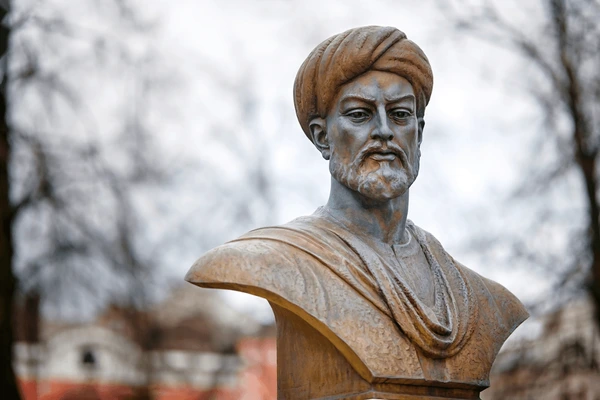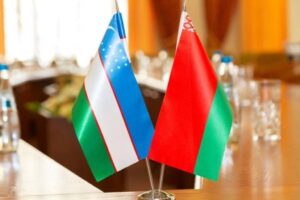Ali Sher Navai – Champion of the Turkic Renaissance and Literary Personality

Ali Sher Navai, an outstanding representative of the Oriental Renaissance, has become an eternal emblem of identity of the cultural, intellectual and aversive progress of the Turkic peoples. All his contributions have gone towards molding the world civilization through call for humanism, culture and language especially through his numerous and diversified writing. Studying Navai’s life and work shows the range of extent to which he impacted literature, language, and humanist culture and his performances as a reformer, poet, and statesman.
The Literary Genius: The Theme of Poetry and Thought as a Monument to Art and Culture
Thus, the main component of Navai’s work stays in several genres combined into a single centuries-long oeuvre and reflecting the idea of the Turkic Renaissance. He composed more than 100,000 lines of poetry, mastering almost 20 distinct poetic forms, a feat few have equaled. His works are Khazazn al-Ma’ani (A Treasure of Thoughts) and the famous Khamsa (Quintuple), five epic poems which are considered masterpieces of Turkic literature. In addition, the Persian divans and his odes are the Muhakamat al-Lughatayn which means the, “debate of two languages” and Mizan al-Avzan which means the “measure of meters” also useful to underline how he belonged to different language and culture and was able to write to each of them.
Genres that became Navai’s hall mark was depth of thinking and humanist outlook on things. He talked about creating a society full of concern, tolerance and a desire for peace, people who can come together for friendship. His lines were a signal of the humanist values and found a positive response among audience beyond the Turkic area.
Advocate of the Turkic Language: Preservation and Revival
Among the most important contributions that Navai has made are his attempts to raise the status of the Turkic language and literature. When Arabic was the Science language and Persian controlled Poetry and governmental affairs, Turkic occupied lingo tones. In Muhakamat al-Lughatayn Navai tried to defend and illustrate the nobility of the Turkic language’s aphorism, its depth and flexibility of the style. By means of this treatise, he raised the level of Turkic as an equally rich and capable language as literary languages.
His poetry put together the Turkic peoples’ fragmented identity, and his advocacy set the foundation for a united literary language. Navai also focused on the artistic and effectively equally important aspect of Turkic and laid the foundation for future generations of the Turkic people. This achievement is comparable to one of the great cultural personalities like the French poet Joachim du Bellay, who devoted himself to the development of culture and the lifting of the image of the language and literature of the country, the Russian polymath, Mikhail Lomonosov.
A Figure of the Renaissance and an Optimist of his Age
Navai is not only a great writer and a linguist but also a true humanist whose main goal was to promote the development of different spheres of people’s life. Though he was aware of the popular trend of the Arabic language oral literature and encouraged its synthesis with Persian poetry, he was a patron of the Persian poets and Persian literary traditions that enabled him to contribute toward the development of Persian literature and to give directions to create multiple types of Persian literature during the phase when there were inclinations toward degeneration.
This attitude is underlined by cross cultural appreciation of literature indicating his ideas about the essence of literary traditions and languages flying in handy. Here, the great patriotic and visionary work of Navai to restore the Turkic culture and spirituality after the destruction of the Mongol invasions is to be appreciated. He restored the spirit of nation and put the fertile soil for continued cultural-receptive and philosophical legacy under the rule of Timurids. His contemporary, Daulat Shah Samarqandi, a historian also, admired Navai’s impact considering that he was serving both rulers and the mass, explaining that within the Islamic world, his works were welcome and respected.
A Scholar- Politician of Vision and Morality
Altogether, alongside with writing, Navai engaged himself in governance and public spheres in terms of activities. He served his childhood friend, the last great Timurid ruler Sultan Husayn Bayqara for nearly three decades as his vizier. They advocated for cooperation, prosperity, security of the nations, establishment of international cooperation, popularization of science and education. This brought him the accolade of “pillar of the country” thanks to Navai’s contribution toward the strengthening and development of his nation. His was always an ethic of integrity enriched by the ideas of human dignity and the general well-being of the population.
World Heritage and Humanistic Responsibility
These and all other concerns that Navai conveyed in his works and through his philosophy, were beyond the ability of national ideas and values. He wanted to improve the world by inspiring humanism and the art of teaching, and donating towards the creation of an ‘ideal man.’ For him literature and arts were instruments that could help providing information and raising the human worth. Thus, he incorporates spirituality and humanism as the Islamic scholar in his literary works before setting a legacy for literary scholars, poets, humanists of the future.
This classic collection reveals something very significant about Navai – the respect and admiration that he was afforded throughout his life by rulers, scholars and the general population in fact indicates the extent of his impact. When people recall and discuss various rulers’ obsession with owning his works and speaking to him, that evidence of how cultured and influencing Samarqandi was must suffice. Navai was more than a man of his generation but a beacon of spiritual direction whose lights still direct viewers towards cultural conservation, intellectual enhancement, and humane practices.
Conclusion
In his life as in his works, Ali Sher Navai epitomizes the Oriental Renaissance. Here, I discussed five areas of his importance for the Turkic peoples, Persian literature, statesmanship, and humanism: Turkic language and literature, Persian language and literature, statesmanship, and humanism. It is neither a national nor a regional or an epochal achievement; it is a historic beacon of literature, culture, and human spirit in the world. His desire as an artist and a man of letters Navai synchronizing artistic vision and knowledge to turn the world into a more charitable and enlightened place can be considered even more pertinent today.


